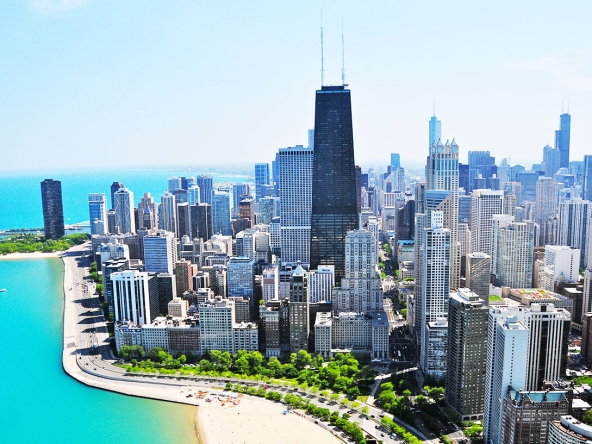
Land encroachment is an issue that has increasingly become a matter of concern,
especially in fast-growing urban areas. This write up aims to explore what land
encroachment is, the different types of encroachment, statistics on the issue in Nigeria
particularly in cities like Ibadan, Abuja, and Lagos, comparisons with land easement,
and practical solutions for preventing and resolving encroachment disputes.
We shall also delve into the laws governing land encroachment and highlight some
notable cases.
What is Land Encroachment?
Land encroachment occurs when an individual or entity unlawfully extends their
boundaries onto another person’s property, this act may be intentional or unintentional,
but it often leads to conflicts, especially when property rights are involved.
Encroachment can occur in various forms, including physical occupation or the
unauthorized use of land.
Types of Land Encroachment
1.Structural Encroachment: This type of encroachment happens when buildings or
other structures extend beyond a property line into neighboring land. Examples include
walls, fences, or extensions of homes that breach the boundary into another individual’s
land.
2.Physical or Natural Encroachment: This occurs when trees, driveways, or
landscaping cross over into another’s property. While this may seem minor, it can
escalate into legal issues if not promptly addressed
3.Unintentional Encroachment: This often occurs due to a lack of knowledge of
property lines or because of mistakes made during land surveys.
4.Intentional Encroachment: In some cases, individuals knowingly occupy a portion of
neighboring land, hoping to acquire rights to it over time. This is often seen in land grab
scenarios in developing regions.
Land Encroachment Statistics in Nigeria
In Nigeria, rapid urbanization and population growth have exacerbated the problem of
land encroachment. Cities like Ibadan, Abuja, and Lagos are experiencing significant
pressure due to land scarcity and poor land management practices.
Lagos State: Lagos, being the most populous city in Nigeria, has seen a surge in illegal
land encroachments. Reports from the Lagos State Land Bureau indicate that over 60%
of land disputes in the state involve encroachment issues, with much of the conflict
occurring in areas like Lekki, Ajah, and Ikeja.
Ibadan: In Oyo State, where Ibadan is the capital, land encroachment has become
prevalent in rapidly developing regions like Moniya, Ido, Eleyele and other areas. Over the
past decade, there has been a reported 25% increase in land encroachment cases,
according to data from the Oyo State Ministry of Lands, Housing, and Urban
Development.
Abuja: As Nigeria’s capital, Abuja is a hotbed of property disputes due to its high real
estate value. Data from the Federal Capital Territory Administration (FCTA) suggests
that land encroachment is most rampant in satellite towns such as Lugbe, Kuje, and
Karu, where developers are in fierce competition for land.
Land Encroachment vs. Land Easement
While land encroachment refers to unauthorized occupation of someone else’s land,
land easement is a legal right that allows a party to use another’s land for a specific
purpose. Easements are typically agreed upon by both parties and are legally binding.
For instance, a common easement would allow utility companies to use part of your
land to install power lines. Unlike encroachment, easements are lawful and are outlined
in property agreements.
How to Prevent Land Encroachment
1. Accurate Land Surveying: One of the most effective ways to prevent land encroachment is through regular and
accurate land surveys. Clearly defined boundaries help avoid unintentional
encroachment.
2. Fencing and Marking Property Boundaries:
Building fences or walls along your property lines ensures that no one unknowingly
crosses into your land. In a situation where the land owner is not financially buoyant to build
a fence, it is therefore advisable that the owner erects visible corner peices that contains
information of relevant parties.

3. Legal Documentation:
Ensure that all property transactions are well-documented and registered with the
appropriate land registry. This will make it easier to prove ownership and contest any
encroachment.
4. Community Awareness:
Property owners should educate themselves and their neighbors about land rights and
responsibilities to prevent disputes from arising.
5. Frequent visit:
Property owners should ensure they visit or assign someone to visit the property from time
to time. This helps in the monitoring of the said property. This will also help to reduce the
chance of land encroachment and also keep them informed of recent developments in the
area.
What to Do When There’s Land Encroachment
1. Verify the Encroachment: Before taking any action, confirm whether encroachment
has actually occurred. This can be done by hiring a licensed surveyor to establish the
boundaries of your property.
2. Open Dialogue: In some cases, encroachments happen unintentionally. The first step
should be to approach the encroaching party and try to resolve the issue amicably.
3. Mediation: If an agreement cannot be reached, mediation is a less formal way of
resolving the dispute without going to court. A neutral third party can help negotiate a
compromise.
4. Legal Action: If mediation fails, you may need to take the matter to court. Depending
on the severity of the encroachment, remedies may include an injunction, financial
compensation, or a court-ordered removal of the encroachment.
Laws, Rules, and Regulations on Land Encroachment
In Nigeria, land disputes are governed by several legal frameworks, including:
1. Land Use Act of 1978: This act vests all land in each state of Nigeria in the hands of
the state governor, who holds it in trust for the people. It outlines the procedure for land
acquisition, ownership, and land rights, making it a pivotal document in land-related
matters.
2. Urban and Regional Planning Laws: These laws regulate how land is used within
urban areas, ensuring that developments occur in an orderly manner. Encroachment
often arises in areas where these regulations are poorly enforced.
3. Penal Code (Northern Nigeria) and Criminal Code (Southern Nigeria): Both
codes outline punishments for trespass, which can be applied in cases of
encroachment.
4. State Land Laws: Many Nigerian states have specific land laws that address
encroachment. For example, Lagos State has laws that outline the penalties for illegal
land acquisition and encroachment.
Notable Cases of Land Encroachment in Nigeria
1. Lekki Free Trade Zone (Lagos):
In recent years, the Lekki Free Trade Zone project in Lagos has been marred by land
disputes, with multiple cases of encroachment reported. The state’s government has
had to intervene multiple times to mediate conflicts between residents and developers.
2. Abuja’s Land Speculation:
In Abuja, rapid urban expansion has led to several cases of encroachment, particularly
in satellite towns. One significant case involved the illegal occupation of government-
acquired land, which led to a protracted legal battle between landowners and federal
authorities.
3. Ibadan Land Disputes:
In Ibadan, Oyo State, cases of land encroachment have often stemmed from poor land
documentation and conflicting claims of ownership, especially in developing areas such
as Akobo and Eleyele.
Land encroachment is a serious issue that affects property rights and urban
development, particularly in growing cities like Ibadan, Abuja, and Lagos. To prevent
land disputes, accurate surveying, legal documentation, and community awareness are
essential. Where encroachment does occur, mediation and legal action can help resolve
conflicts. The Land Use Act and various state laws provide a legal framework to
address these disputes, but enforcement remains a challenge in many areas. Through
improved land governance and awareness, Nigeria can reduce the prevalence of land
encroachment and safeguard property rights.




